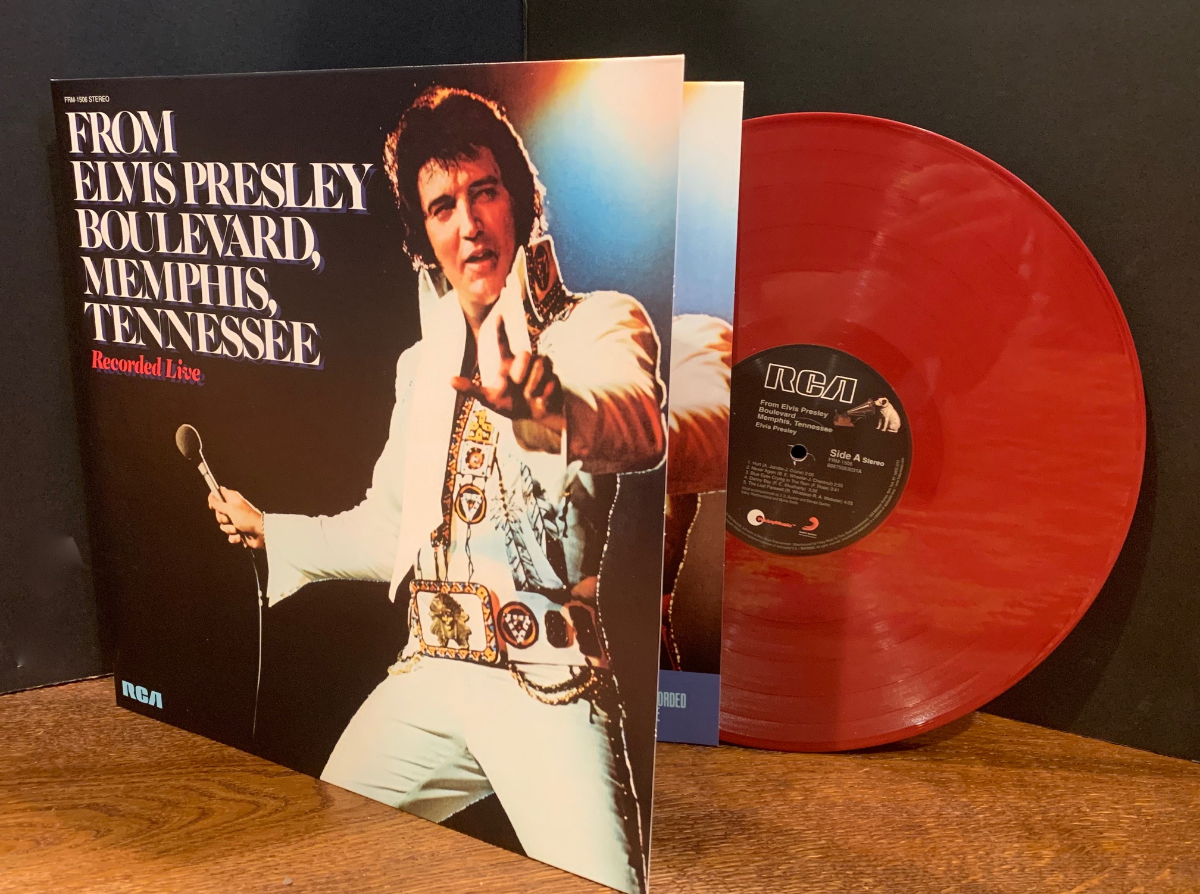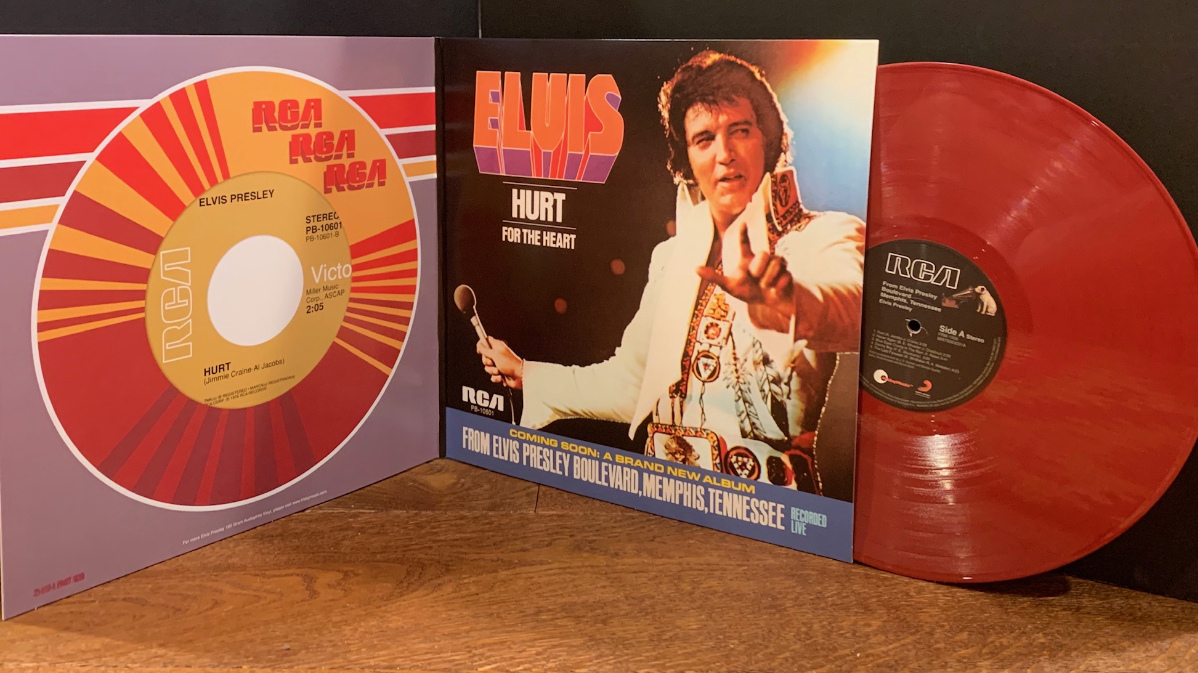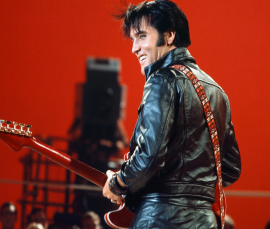
Elvis Online. Newbury
Best Viewed 1366 x 768'From Elvis Presley Boulevard, Memphis, Tennessee' - A Deep Dive into The King's 1976 Album
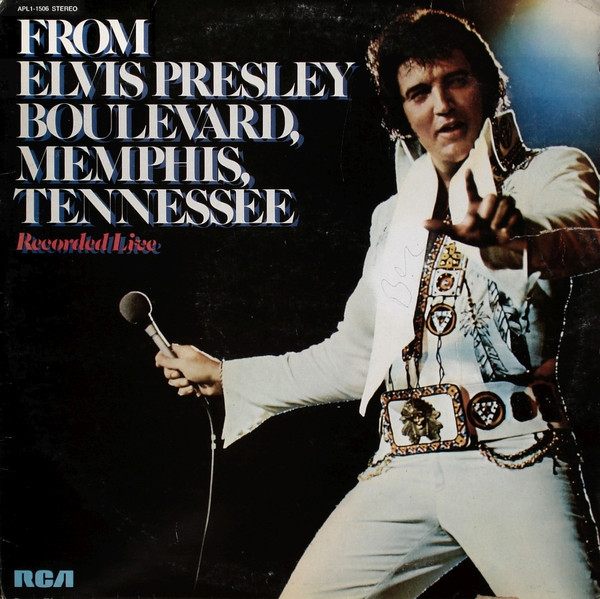
In the mid-1970s, Elvis Presley was experiencing both personal and professional challenges. Amidst these struggles, he managed to release 'From Elvis Presley Boulevard, Memphis, Tennessee,' an album that showcased his enduring talent and charisma. This article explores the background, production, and reception of this iconic record, which continues to captivate fans more than four decades after its initial release.
Background and Recording
Following the success of his 1973 album, 'Aloha from Hawaii via Satellite,' Elvis Presley's career began to falter. His health was deteriorating, and his personal life was in turmoil. Despite these hardships, Elvis persevered and commenced recording sessions for his next album at his Graceland mansion on Elvis Presley Boulevard in Memphis, Tennessee.
From February 2 to 7, 1976, Elvis, along with his band and a mobile recording studio, transformed the Jungle Room – a den complete with shag carpet, artificial foliage, and a roaring waterfall – into their creative space. The intimate setting allowed for a more relaxed environment, which was a marked departure from the typical studio experience.
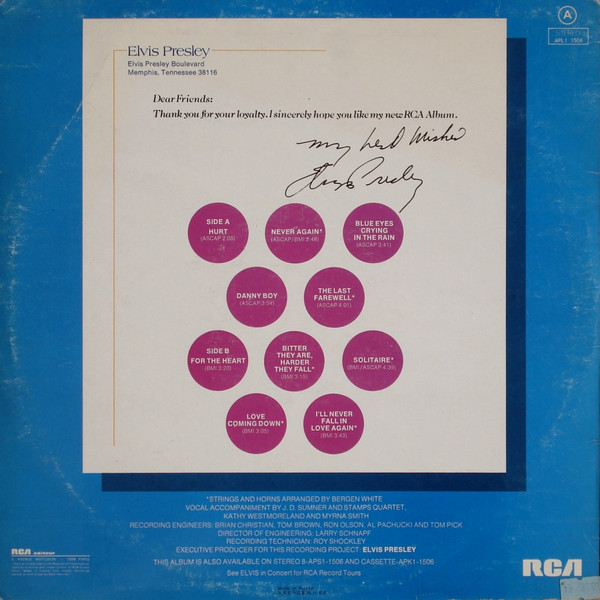
The Album and Its Songs
'From Elvis Presley Boulevard, Memphis, Tennessee' features ten tracks that exemplify Elvis' diverse musical influences. The album combines soulful ballads, R&B covers, and country-tinged tunes, displaying his versatility as an artist.
The album opens with 'Hurt,' a torch song that highlights Elvis' powerful, emotive vocals. The gospel-infused 'Danny Boy' and the bluesy 'Solitaire' showcase Presley's ability to connect with the listener on a deep, emotional level.
One standout cover of the Chuck Berry classic 'Blue Eyes Crying in the Rain.' Elvis' renditions of this song add his unique flair and demonstrate his appreciation for the roots and traditions of rock 'n' roll.
Track Analysis
The album comprises ten tracks, each offering a distinct blend of
rock, pop, and country influences:
"Hurt": This powerful ballad opens the album with a poignant exploration of heartbreak and regret. Elvis's vocal delivery is emotionally charged, making it one of his most memorable performances.
"Never Again": A hauntingly beautiful song that speaks to themes of lost love and sorrow. The melancholy melody and Elvis's soulful rendition amplify the song's emotional impact.
"Blue Eyes Crying in the Rain": Originally written by Fred Rose, this song showcases Elvis's ability to convey deep emotion through his voice. His rendition is both tender and heartbreaking, reflecting his own sense of longing.
"Danny Boy": Elvis's version of this traditional Irish ballad is a standout track. His heartfelt performance and the lush orchestration create a hauntingly beautiful rendition that leaves a lasting impression.
"The Last Farewell": A cover of Roger Whittaker's hit, this song features rich, warm vocals and a sense of nostalgia. The reflective lyrics and Elvis's emotive delivery make it a highlight of the album.
"For the Heart": A more upbeat track that provides a contrast to the otherwise melancholic tone of the album. The energetic rhythm and Elvis's spirited performance bring a sense of hope and resilience.
"Bitter They Are, Harder They Fall": This track delves into themes of betrayal and heartache. Elvis's powerful vocals and the song's soulful arrangement create a deeply affecting listening experience.
"Solitaire": Written by Neil Sedaka, this song is a reflection on loneliness and isolation. Elvis's nuanced performance captures the essence of solitude, making it one of the most touching tracks on the album.
"Love Coming Down": A melancholic ballad that speaks to the fragility of love. The subtle instrumentation and Elvis's tender vocal delivery enhance the song's emotional depth.
"I'll Never Fall in Love Again": The closing track of the album, this song conveys a sense of resigned heartache. Elvis's vocals are filled with a mix of sadness and acceptance, providing a fitting conclusion to the album.
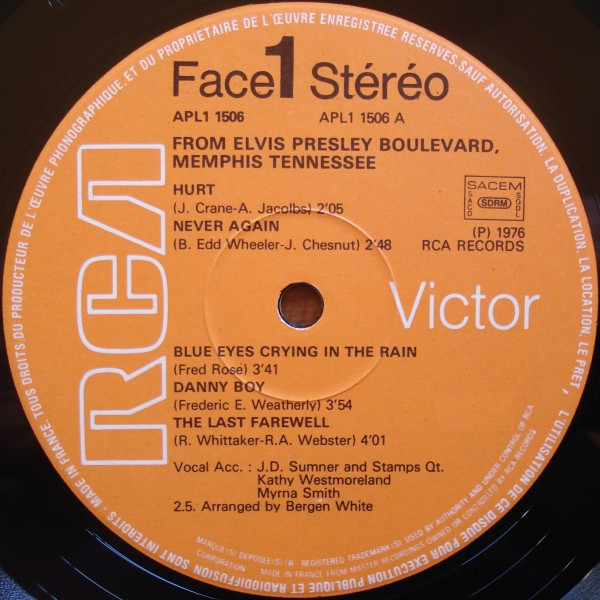
Promotion and Reception
'From Elvis Presley Boulevard, Memphis, Tennessee' was released on May 1, 1976, by RCA Records. The album was marketed as a return to Elvis' roots, with promotional materials emphasizing the intimate, informal setting in which it was recorded.
The album was well-received by critics and fans alike, debuting at number 6 on the US Billboard 200 chart. 'Hurt' was released as a single, reaching the Top 40 on both the US Billboard Hot 100 and US Billboard Country charts. In the wake of the album's success, Elvis embarked on a string of tour dates, demonstrating his continued passion and commitment to his craft.
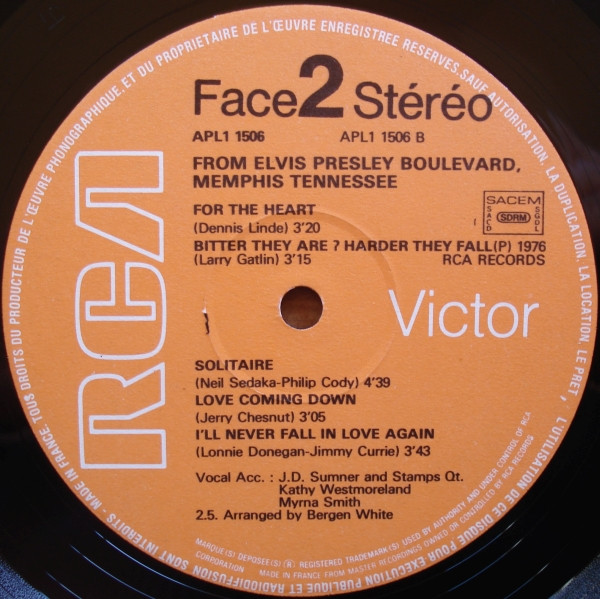
Legacy and Conclusion
Despite his personal struggles at the time, 'From Elvis Presley Boulevard, Memphis, Tennessee' stands as a testament to Elvis Presley's enduring talent and appeal. The album's blend of genres and authentic, intimate recording sessions solidified his status as a cultural icon and paved the way for future artists to explore their own creative potential.
Today, the album remains a beloved piece of Presley's extensive discography. The Jungle Room at Graceland has been preserved as a historical site, a testament to Elvis' unyielding dedication to his music and his fans. 'From Elvis Presley Boulevard, Memphis, Tennessee' serves as a reminder of the King's lasting impact on music and his undeniable place in popular culture.
